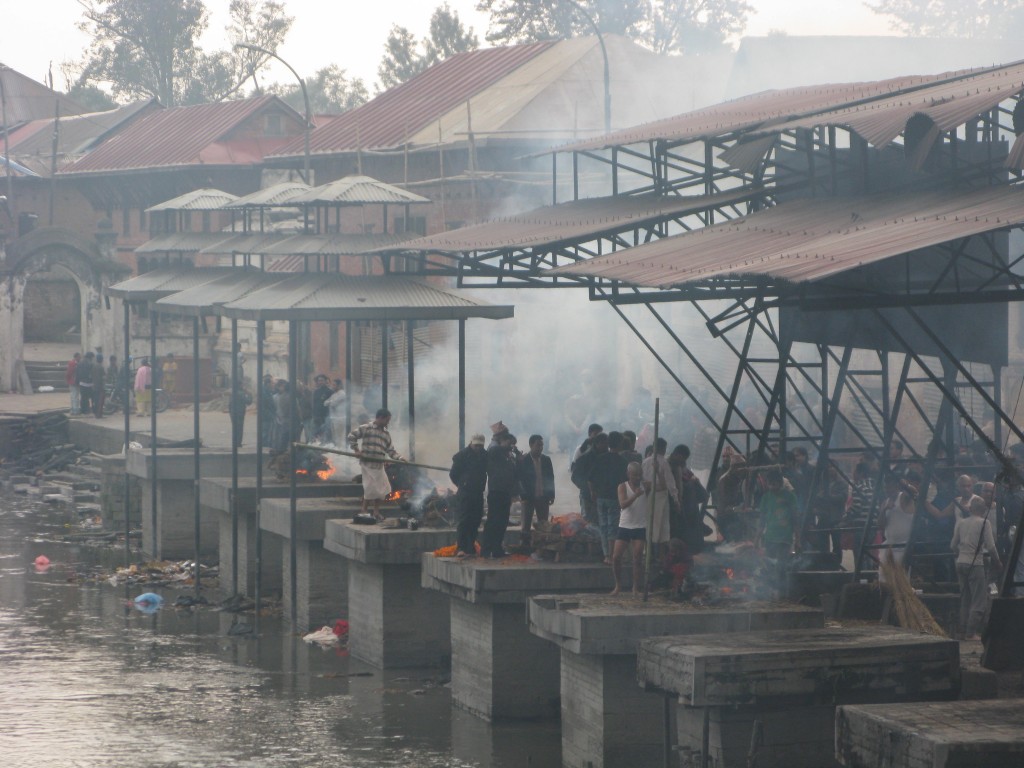I encourage you to travel, to learn about different cultures, their real customs and traditions. But I also want you to be polite, sensitive and respectful. While doing my research for an upcoming visit to Indonesia, I came across the Frommer’s “Favorite Experience in Indonesia” below.
“Observing Open-Air Public Cremations: Hindus believe that cremation is the only way a soul can be freed of its earthly body and travel to its next incarnation (or to enlightenment), so cremations are joyous occasions, full of floats and fanfare that can resemble a Mardi Gras parade. Complicated towers hold the body, carried aloft by cheering men. At the burning ground, the body is placed in a receptacle resembling a winged lion, a bull, or some other fabulous creature, and is set on fire. It’s beautiful and awesome, a marvelous show of pageantry and faith, and yet a natural part of everyday life. Western visitors are welcomed.” Source: Frommers
The way the author has described a Hindu cremation ceremony as a tourist spectacle is totally outrageous display of cultural and religious insentitivity. A Hindu funeral is not a Mardi Gras parade, but a solemn time of observance where the entire community mourns over the deceased and provides comfort to the family. The men are not cheering, but chanting God’s name. The body is cremated so it can go back to where it came from, that is soil of the Earth.
“Regular Balinese cremation ceremonies (known as Ngaben), have become major tourist attractions in the recent past. The tourism industry as a whole, with its big-time capital investment and resort development, has worked to change the social structure of Balinese society and as such has had serious implications for the commercialization of the cremation ritual” according to the writers of Bali Global Market. According to Prof Ngurah Bagoes, a professor in the Faculty of Letters at Denpasar’s Udayana University, “Such hype is rarely accompanied by a deep understanding of religious essentials”.
How would you feel if a foreigner comes to visit USA, drops by your mother’s funeral uninvited, takes photos, and goes back to his home country to share it with his friends on his Flicker page? To avoid this unnecessary intruition by western visitors, non Hindus are not allowed to enter many of the temples across Asia (including the famous Pashupatinath Temple in Kathmandu, Nepal), and only muslim tourists can visit the holy city of Mecca, Saudi Arabia. For this reason, it is important to ensure that you are aware of any funeral customs within the country you are visiting, whether it’s Hindu, Japanese, or vietnamese funerals, or anywhere around the world. As a visitor, it is important to understand and respect these sacred customs, whether you understand them or not.
See tourists kissing during a Hindu Royal Cremation Ceremony in Ubud.
Surely, we all want to learn about other religious customs, but we also have to be mindful of where we are and what are the circumstances. To take someone else’s tragedy and make it your entertainment does not portray a sign of humanity. Forming an opinion based on limited biased information such as those found in guidebooks is fueling ignorance. Many of the traditions you see around the world have a rich history spanning thousands of years. They have meaning and significance, which can not always be interpreted visually. That is why I recommend you get to know the locals and allow them to teach you the correct way of observing and interpreting local customs.
